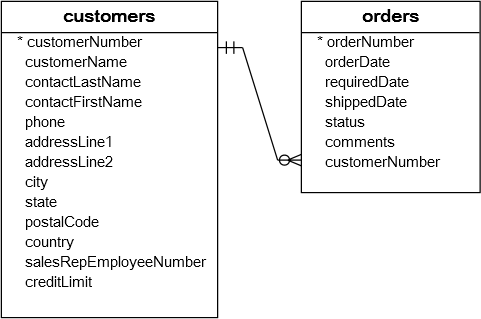To create multiple conditions linked with OR, you put each separate condition in a different column of the Criteria pane. To specify an OR condition for two different columns. In the Criteria Pane, add the columns you want to search. In the Filter column for the first column to search, specify the first condition.
SQL with columns in where condition. I think the problem is in where clause , because it cannot take two columns. Any idea on how to solve this? If you want all even where there food fulfills neither conditions in either month, then do a left join inside one.
SELECTING with multiple WHERE conditions on same column. SQL should look something like:. SQL Two Different WHERE Conditions. Select two columns from same table with. This does not answer the question, which is not only asking for yielding two columns, but also has a specified SQL dialect: Informix.
You can convert various elements in a single column to individual fields by using joins, the fields being related by some common factor that would allow you to correlate them. For example, in a table where pets are listed by owner. FROM ANIMALS as A INNER JOIN ANIMALS AS B. APPLIES TO: SQL Server Azure SQL Database Azure SQL Data Warehouse Parallel Data Warehouse. In some instances, you might want to apply a number of search conditions to the same data column.
Where Rankwould be based on one condition and Rankwould be based on a different condition. Aggregate multiple columns with different SELECT criteria. SELECT Dept, Project, AVG (Cost) as Cost_Mean, MAX (Cost) - MIN (Cost) as Cost_Range,.
Since the question is tagged MySQL, you can use simple IF statements to choose what to aggregate: SELECT items. DISTINCT on multiple columns. Does any one know how to combine two columns into one using SQL ? This is the only thing that comes.
SELECT Rank FROM RankingData AS inner WHERE outer. X are the values you want to give to the columns. The conditions can be one condition, or multiple, dependent on what you need.

An example of a condition could i. Is this possible in the same query? SELECT query i need to get values from SUM columns but having different WHERE conditions. What are the ways I can combine from more than one query? SQL wouldn’t be a very useful language if it didn’t provide an easy means for you to combine from more than one query.
Fortunately there are three main ways you can combine data from multiple tables. This shows that you can order by more than one column. I used a subquery to create a column telling me once for all in which table I should get the info. I then reuse that in a CASE statement (which return a single value so you need to do that separately for each expression where you have to select data from one table or another).

Is it possible to extract the multiple variable parts of data into different columns without a procedure? SQL join two tables related by a single column primary key or foreign key pair using where clause. Multiple selects on same column , same table, one query.
Microsoft SQL Server Forums on Bytes. END ) column_name When I run the query, the case statement seems to be evaluating only the first condition and ignores the send condition where the values exist. WHEN (column= awe and column= kls) THEN 2. SELECT columnA IF columnA value is GREATHER THAN x ELSE get columnB FROM table.
I know the syntax above may not be exactly as it should. I want to grab a value from a table into two different columns for different values from the same table. Use this query as an example (notice how the select is on the same table aliased as different tables): SELECT a. Val FROM MyTable a, MyTable b WHERE a. Suppose, we have two result sets A(2) and B(3).
The following picture illustrates A UNION B: And the following picture illustrates A UNION ALL B. The union is different from the join that the join combines columns of multiple tables while the union combines rows of the tables.
No comments:
Post a Comment
Note: Only a member of this blog may post a comment.